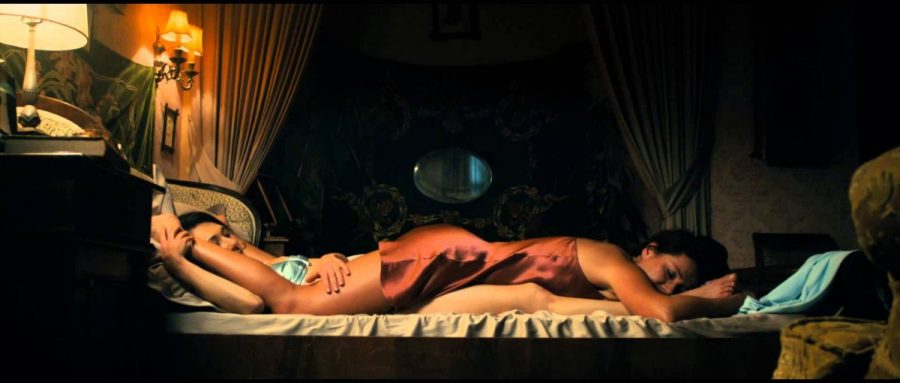Peter Strickland’s Berberian Sound Studio wore its influences on its sleeve. Delving into the world of 1970s Euro-horrors to the extent that it was ostensibly about making one, it used this position to create something altogether new; an intense and surreal meditation on anxiety, violence and moral corruption. With The Duke of Burgundy, the director turns his deft hand to the erotica of filmmakers like Jesús Franco. Once again the results surprise as much as they impress.
A credit sequence showing our lead cycling through the non-specific European countryside, complete with primary coloured freeze frames and a dream-like folk score by Cat’s Eyes, establishes style and what follows wastes no time setting the scene. As Evelyn (Chiara D’Anna), seemingly a housemaid, arrives at Cynthia’s (Sidse Babett Knudsen) home, even the resident cat glares accusingly. Completing her work under her employer’s judging eye, Evelyn’s hopes of leaving early are swiftly quashed: “There’s plenty left to do,” Cynthia states bluntly, “you can start by rubbing my feet.” It seems cruel, and yet forbidden glances suggest a longing on Evelyn’s part – a desire to be treated this way. Everything about her tasks conveys heightened sensuality: from tight close-ups of delicate undergarments soaking in soap suds, to the amplified sounds of bubbles bursting in the wash or the crumpling of a paper wrapper, each taking on a charge of sexual tension.
Yet as Evelyn and her presumed employer cradle each other in bed, it becomes clear that all is not as it seems. This is not the build-up, but the enactment of a relationship that already exists: we watch through double vision, the mood becoming almost ethereal as the pair intertwine in pleasure. Juxtaposed with this erotic haze are close-ups of moths, creatures that the two (actually entomologists) spend their days observing under microscope; a perspective change soon sees the minutiae of Evelyn and Cynthia’s relationship come into focus as well. Now seeing things from Cynthia’s side, we become aware of her instructions: we see the cue cards and scripted lines; we see her adopting character, glimpses of her face between the pre-arranged beats suggesting nerves and occasional weariness where previously we only saw dominance. She is not the one in charge and nor is it a role that necessarily comes naturally to her. She is, however, in love.
What follows is not just an exploration of the frustrations that arise in S&M when the supposed submissive calls the shots, nor is it specific to a lesbian dynamic, but instead to any relationship. Operating within its own terms, Strickland’s film presents a world that is not only free from time or place (the pencil skirts, lavish lingerie and riding boots seem to cover a spectrum of possible dates), but also the presence of men – or even women who aren’t involved in relationships like Evelyn and Cynthia’s. Indeed, the local bondage furniture saleswoman is never low on business, though frosty encounters with an older neighbour (played, cleverly, by Franco veteran Monica Swinn) do suggest a possible generational divide. The result is a normalising effect that liberates the film from potentially problematic questions of gender and power, allowing it focus more on the weight of expectation and the pressure to be the person your partner wants, even when you’re under strain.
This is mostly manifested through the levels of sexualisation Evelyn has grown to enjoy. At one point Cynthia attempts a sensitive exchange, only for Evelyn to suggest she “talk about the other things”. Later, when injury puts a dampener on matters, all Cynthia wants is a back-rub; she is instead met by complaints that her dowdy pyjamas don’t exactly make the idea of physical contact “inspiring”. Such is the effectiveness of Strickland’s allegory that when this conflict of perceived obligations comes to a head with an act of betrayal, even the retort “so had I ordered a human toilet, none of this would have happened?” is able to contain a palpable sense of hurt. Similarly, a scene in which the pair attempts to enact one their most repeated roleplays during their lowest moment contains as much believable upset and resentment as any romantic breakdown you’re likely to see onscreen. Alternately sensual, humorous, hallucinatory and poignant, the film is – most of all – human. This isn’t just about a relationship; this is about all relationships.
